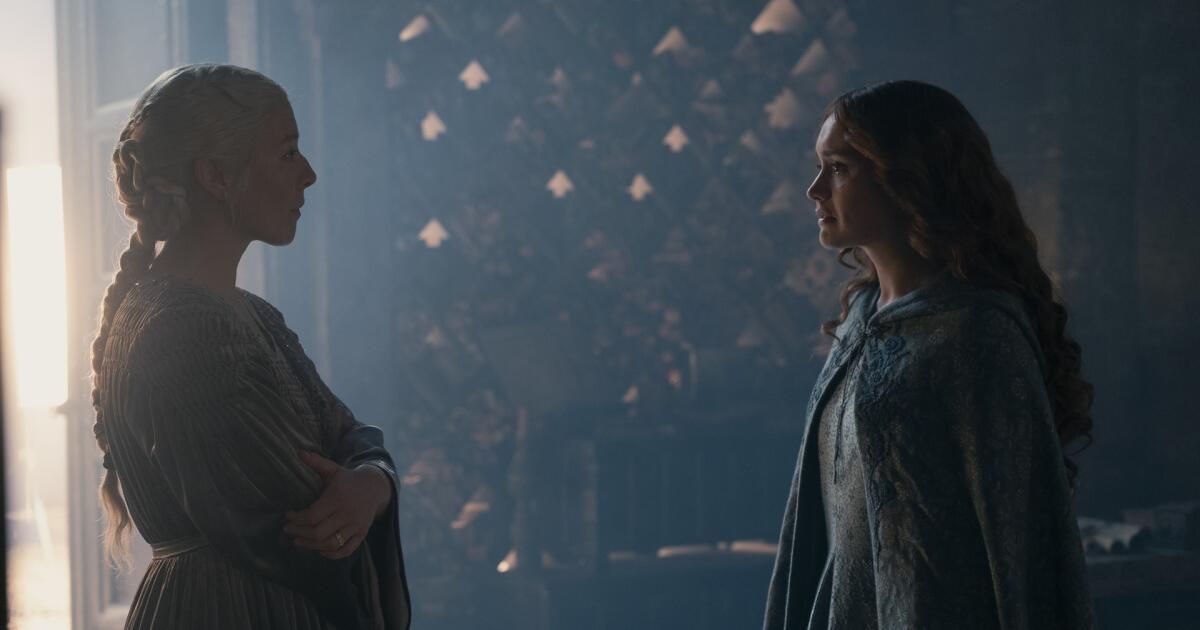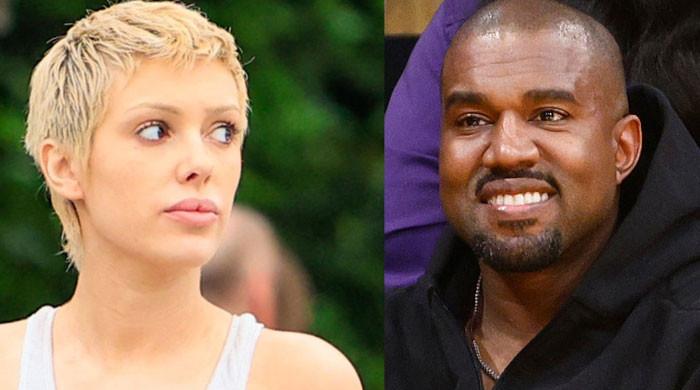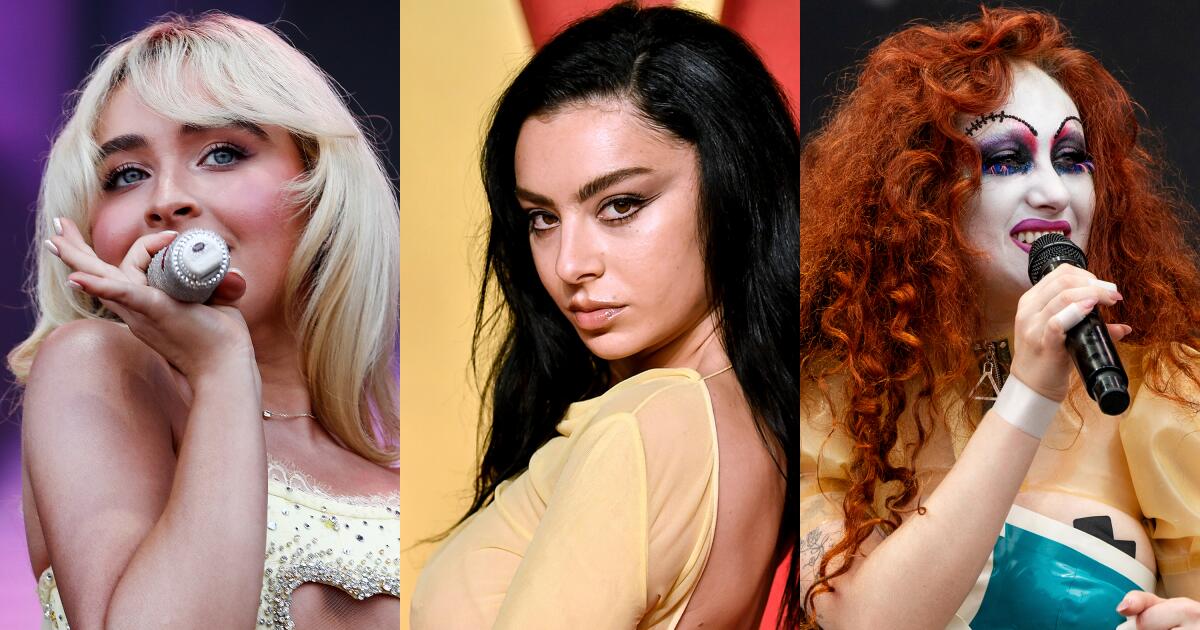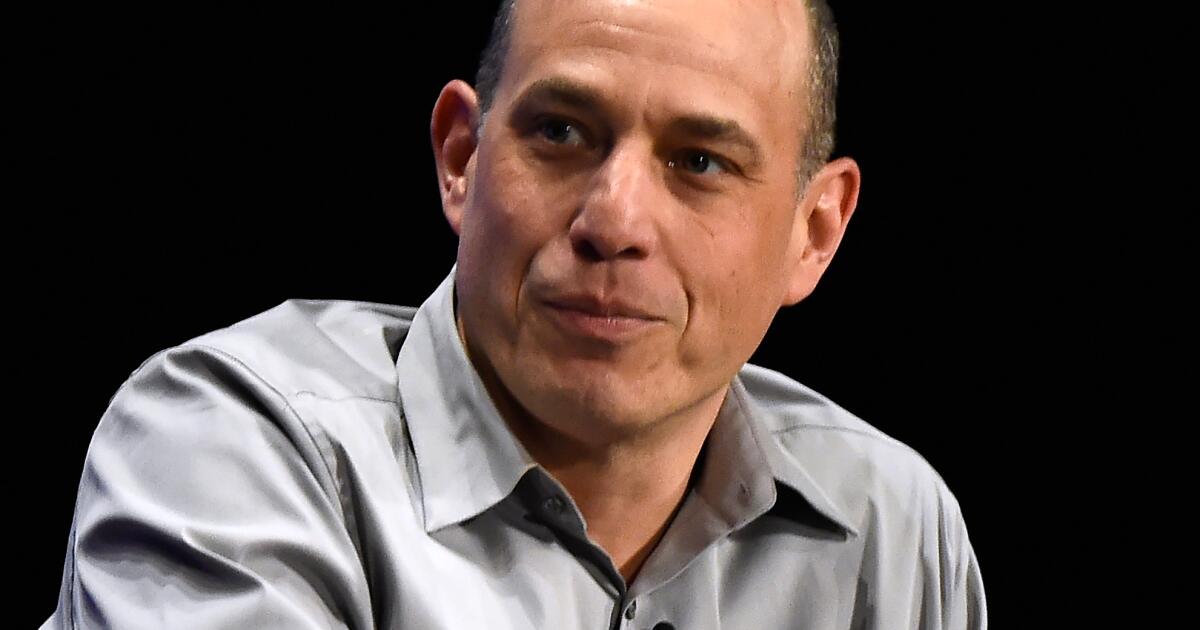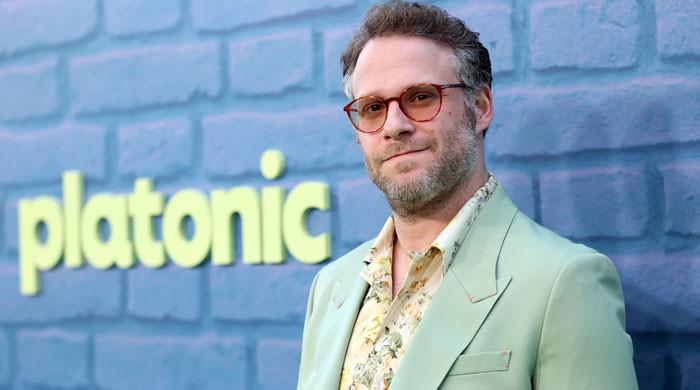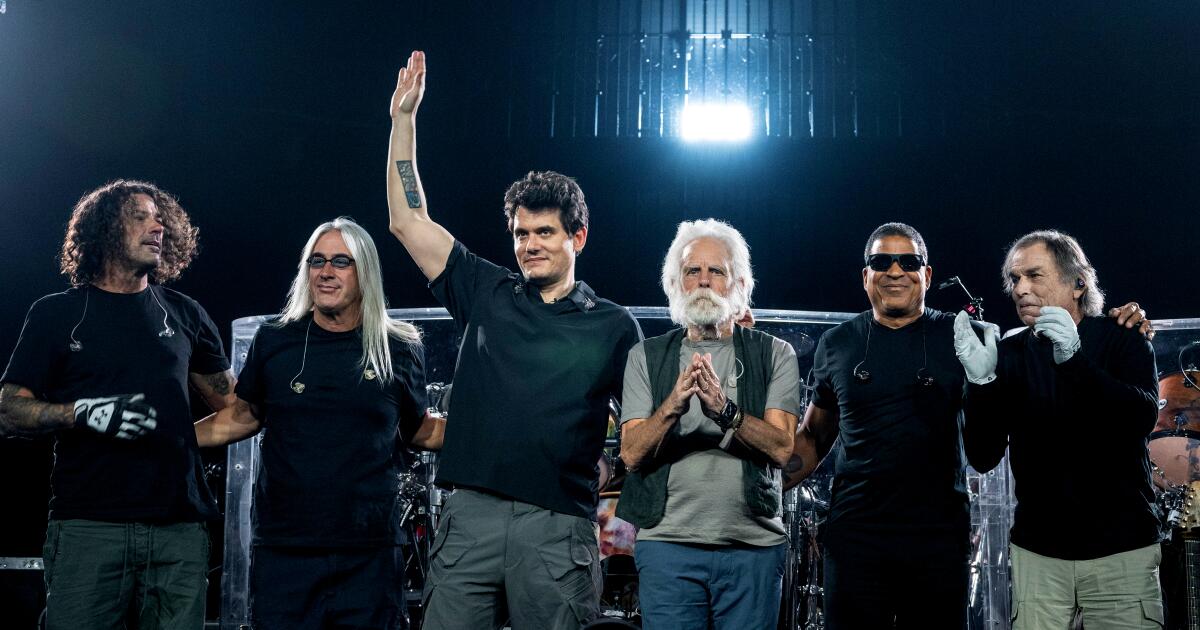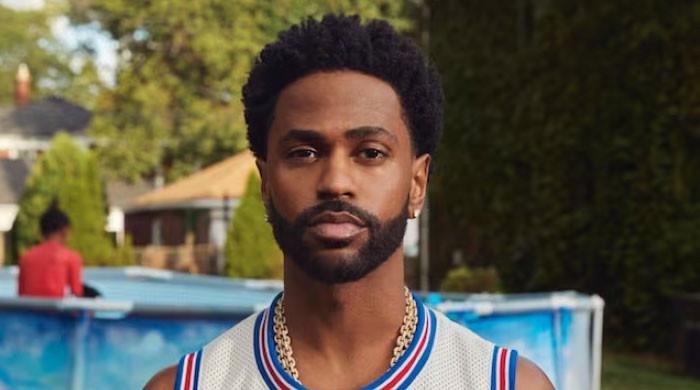This story includes spoilers for House of the Dragon, Season 2.
Geeta Vasant Patel spent most of the 10 months of filming the second season of “House of the Dragon” trying to figure out the final shot of the season.
“I kept trying to think of what images would be for the end of this episode and nothing felt right,” Patel, who directed the finale, said during a recent video call. “It had to end with a huge emotional high. It had to lift us up in some way even from Episode 7, which was fantastic and so action-oriented that this had to make you feel it even more.”
The final moments of Sunday's finale, titled “The Queen Who Always Was,” featured a montage teasing upcoming action in HBO's epic fantasy series — including a pair of new dragons — before concluding with shots of Rhaenyra Targaryen (Emma D'Arcy) alone in her library and her childhood friend Alicent Hightower (Olivia Cooke) along the cliffs looking out toward the setting sun.
Director Geeta Vasant Patel.
(Kevin Scanlon)
Patel, who also served as a co-executive producer on Season 2, said the image finally came to her while sitting on set in the library and recalling what showrunner Ryan Condal had previously told her about the conversation between Rhaenyra and Alicent and their relationship.
“Ryan had told me that it's like Alicent has carried this burden her whole life and in that scene with Rhaenyra, she takes the burden and gives it to [her]“Patel said. “Now Rhaenyra has to bear the burden of having to kill millions of people and continue the war and Alicent is free. Her burden is freedom.”
As someone who had long dreamed of working on “Game of Thrones,” Patel describes landing “House of the Dragon” — “the Olympics of TV filmmaking” — as the “pinnacle of my career so far.” “The Queen Who Ever Was” was Patel’s third episode of the series, having previously directed Season 1’s “The Lord of the Tides,” which depicts the final days of Viserys, and Season 2’s “The Burning Mill.” She credits her family — especially her mother, who appeared off-camera during the interview to bring Patel some tea — with being able to pursue her dreams.
Patel, who has a background in human rights that led her to work in war zones, began her filmmaking career in documentaries (she also directed episodes of shows like “Star Wars: Ahsoka,” “P-Valley” and “The Great”). Her prior experience in conflict zones has shaped her approach to “House of the Dragon.”
“There’s a lot of what I saw or learned in the war that I applied to my work on the show, because the terminology of an eye for an eye is not taken lightly,” Patel said. “You can see it all over the world right now. You can see it in conflict zones that, unfortunately, are still conflict zones after many, many, many decades.”
Patel discusses Rhaenyra and Alicent's relationship, Daemon's vision, and the filming of the final montages in this conversation, edited for brevity and clarity.
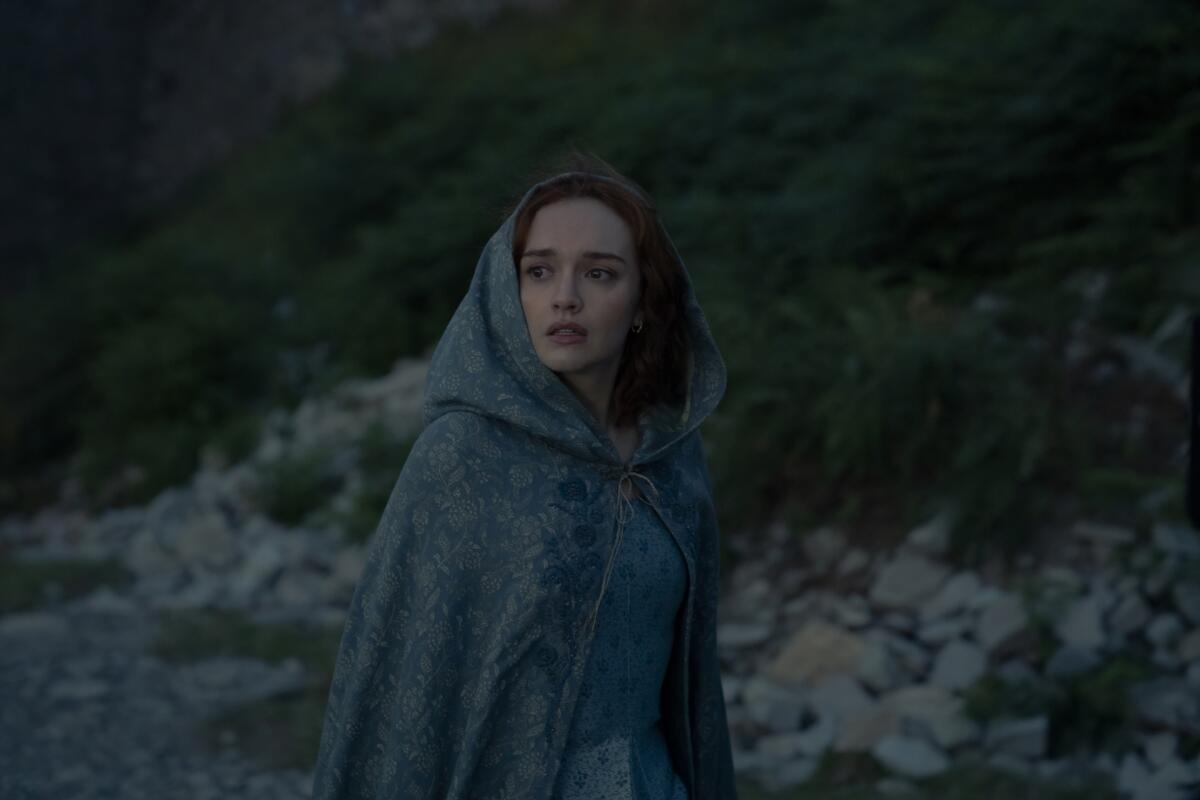
Olivia Cooke in “House of the Dragon.”
(Theo Whiteman / HBO)
Can you explain your approach after receiving the script for this episode?
When I get a script, I immediately look at the three-act structure. I go back to a simple Aristotle methodology: beginning, middle, end. I also look for a middle ground. I look for some kind of change in the middle. Also, as someone who has done a few season finales, I go back to the first episode of the season because I feel like we should treat the season like a movie. I went back and read the opening of the first episode, which Ryan Condal wrote, and in it he talks about what I think is the theme of the season. I haven't confirmed it with Ryan, but for me it's “Duty is sacrifice.” We must sacrifice for duty. I took episode 8 and started trying to build it around that theme.
I knew it was all building up to Rhaenyra being in a room with Alicent saying, “If you want this, act. Sacrifice yourself for what you feel is your duty. If you want to do your duty, that’s what will free you from this burden.” Then the next beat, of course, is the montage. [that shows] That sacrifice has slipped away, with Aegon's departure. That clarity comes in a minute when you get a script, because there's so much going on.
This is the third episode to feature key moments involving Rhaenyra and Alicent. How did working on these previous episodes affect how you approached their meeting in the finale? What is the common thread for you?
In [Season 1,] Episode 8, they made a pact. They were vulnerable and said, “I miss you, my friend.” Then we see them in [Season 2,] Episode 3, and forget everything that has happened, but it hasn't gone away, that feeling of love and desire. Things have happened though, an eye for an eye. And when Rhaenyra enters the room asking Alicent to betroth herself [and] collaborate, what emerges from that conversation is not really collaboration at all, because unfortunately, an eye for an eye wins.
Then we go to [Season 2,] Episode 8, where we need there to be escalating action and Ryan [Condal]Sara [Hess] And I was constantly revisiting both scenes and making sure that they felt connected. Now, it’s almost like nothing happened between those two scenes. Rhaenyra essentially got slapped in the face by Alicent, from her point of view. When Alicent walked into that scene in Episode 8… when Rhaenyra sees Alicent, that’s all she remembers: “You rejected me.” And that’s very human. You see the two of them become children again because that’s what we do in front of the people we’re most intimate with. You see Rhaenyra’s face messed up and you see her almost spitting at Alicent in the way she talks. And you see Alicent biting her nails, which we haven’t seen her do in a long time. I saw that whole thing almost as a trilogy of scenes between these two people.
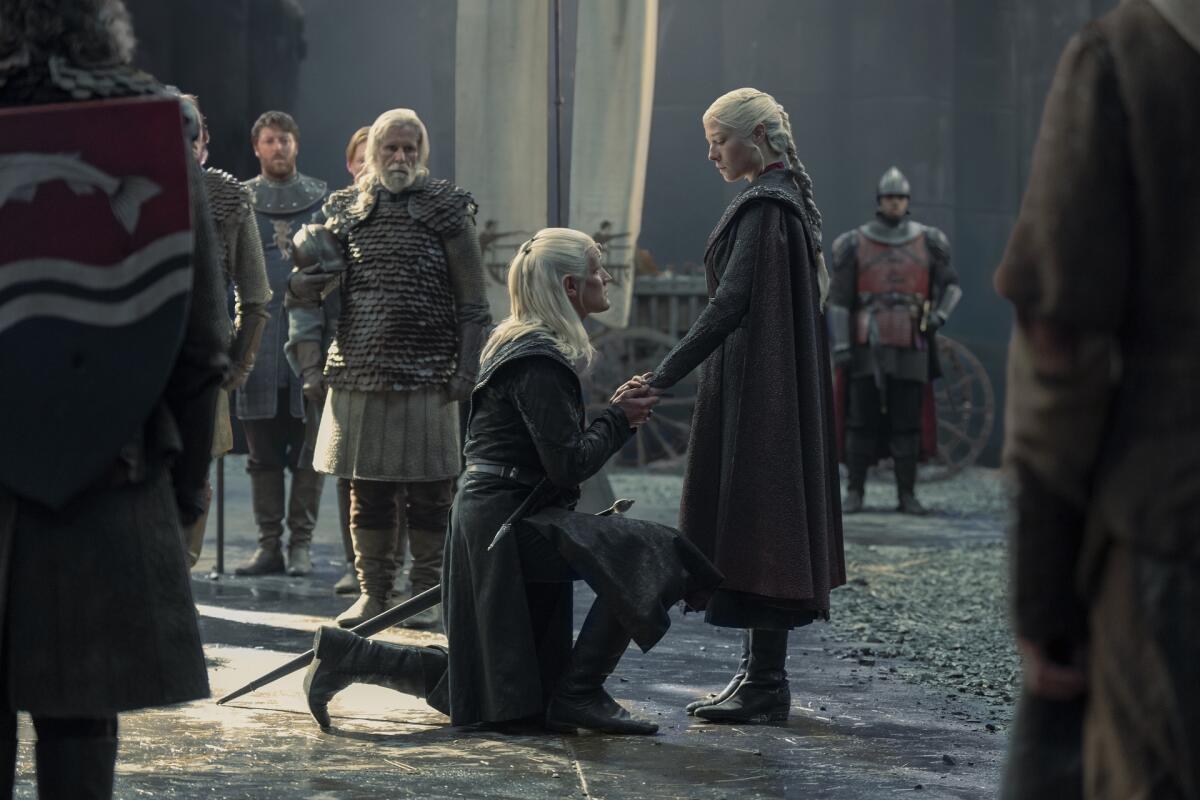
Matt Smith as Daemon Targaryen and Emma D'Arcy as Rhaenyra Targaryen in “House of the Dragon.”
(Ollie Upton / HBO)
For me, a lot of the show is about these two women and the ups and downs of their relationship and how things like their relationships with their respective fathers have affected their dynamic.
It's both of them piling up pain. It's a hero's journey where the pain keeps winning and we're waiting for love to win. There are moments where love won, like in season 1, episode 8, love won, but then the pain keeps piling up. Wherever it comes from: from Daemon, from Dad, from your children, who you can't control, who have become monsters. What I love about episode 8 is that it's really an exploration of the human condition, the constant battle between pain and love.
What is it like to receive a script that says, “and then there's a montage”? I guess a script says more than that, but can you explain that to us?
I was scared. I feel like montages are very dangerous because the longer they are, the more likely they are to be boring and monotonous. The best montages in cinema have been the ones that tell the story and move it forward. The great thing about this montage is that we had a narrative moment in it, which is Aegon leaving, which changes the main story of this episode, which is Rhaenyra and Alicent's relationship. You don't want that to be buried amongst all those moments. [other] And there was no piece of music—we looked, believe me—that could serve that montage. Nothing was long enough. So it was a little bit intimidating while you're in editing, we were like, “We can't even find a piece of music that's that long, we're going to have to take two, three pieces and put them together.” But the main thing that we had to attack when we started that montage was that Rhaena has this C, D story where she's running after this dragon, and it's entirely possible that her story of finding a dragon could overshadow what we're really supposed to point out in that montage. In structuring that montage, I just moved pieces to where I felt like Rhaena still had that moment, but we didn't think it was going to be that long. he moment. That was so much fun.
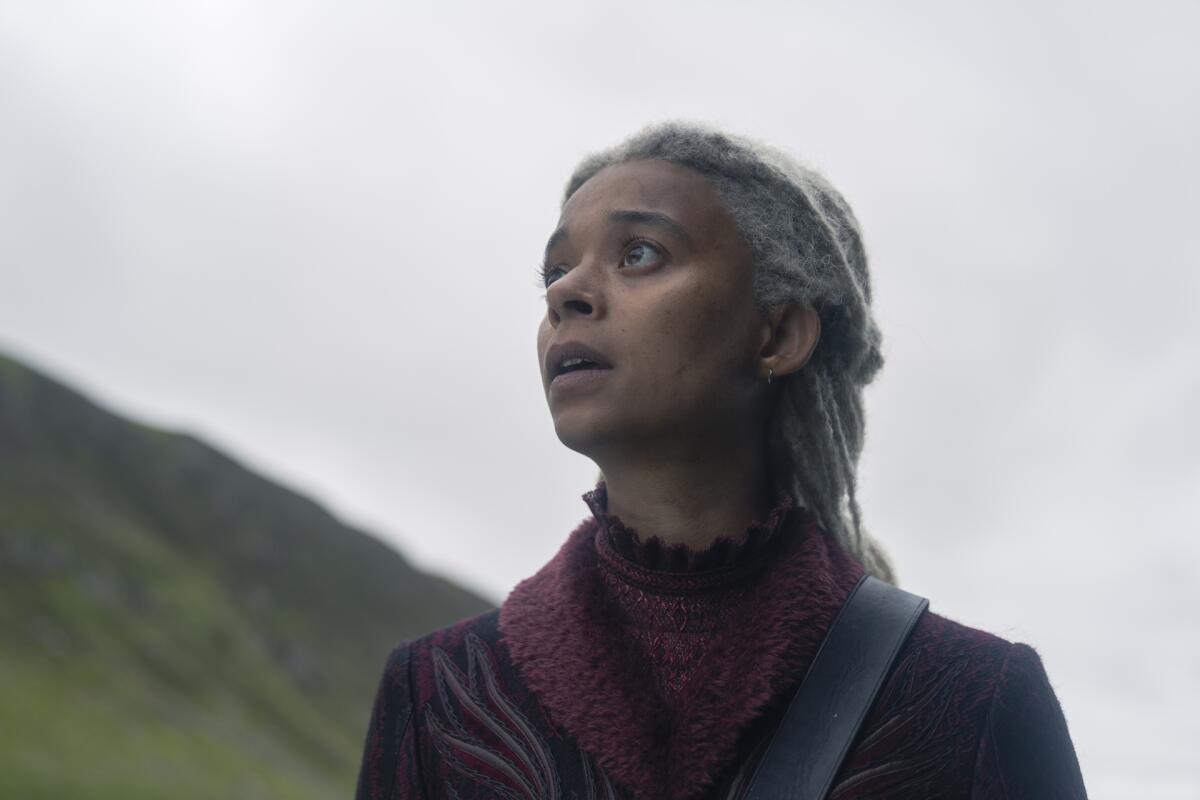
Phoebe Campbell as Rhaena Targaryen in “House of the Dragon.”
(Theo Whiteman / HBO)
I found Rhaena's story very interesting because, especially in this season, we see how important dragons are to a Targaryen. It's her birthright. It's something she's wanted her whole life.
When we originally got the script… I searched within myself for how I related to that moment. For me, there have been so many moments in my life where so many people have told me, especially directors, “You can't. This isn't something that's in the stars for you. You don't belong here. You're not good enough.” There's a moment where you want something so badly and you believe in it that you're willing to die to prove to yourself that it's possible. I feel like this is for all of us who are running for that miracle. I shared it with our team and said, “What if we framed the tone of this around that?” We're going to get the dirt out, we're going to get her on her feet, we're going to get her to a point where she's actually running. We were in Wales and Phoebe [Campbell] She was running and running and running. That was what was in her head, too. “I’m going to die today and I’m okay with that because I want a dragon and I need to know if I can do this.” That was fantastic because even the crew, we were all there with her, it was a very spiritual shoot for us.
You also had that whole other setup in this episode with Daemon's vision.
When I got the script, it was like a section of a list of images. Sara and Ryan talked to me about it and said that the reason it was a list of images was that they didn't want it to feel linear. Ryan really wanted it to be fragmented, so that it was really this vision that [Daemon] You have to put the pieces together [so] Even after he leaves it, it's something that simmers in his head. He needed to feel fragmented, and yet he needed to tell Daemon the story that he needed to know in order to change for the first time in his life, without words, you know, without a big deal, without pressure. He had to believe that it's not about him anymore, that he's just part of this bigger world and that there's something he needs to do, which is put Rhaenyra on the throne. I definitely lost a lot of sleep over that vision because I knew what we needed to accomplish. I knew how difficult it would be. I also felt incredibly honored to be able to do this vision knowing, as a “Game of Thrones” fan, what it represented.

